10-no-to-miss books from 2019 and for 2020!
Here is our selection of 10 of the best business books published in 2019. Topics covered include how to understand the future, how to manage a digital transformation, strategic thinking, and how to bring teams together in the face of indecipherable signs. From the entire team at Business Digest, happy reading!
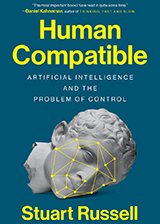 Human Compatible
Human Compatible
by Stuart Russell (Viking, October 2019)
Stuart Russell wants to change the current model that governs artificial intelligence, which is centered on the achievement of a single goal at all costs, defined by human beings. In its place, he proposes beneficial machines, driven solely by the obligation to realize human preferences. A “humble” — and fascinating — view of the future of AI.
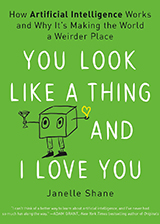 You Look like a Thing and I Love You
You Look like a Thing and I Love You
by Janelle Shane (Wildfire, 2019)
AI researcher Janelle Shane shatters misconceptions about this technology that has become so embedded into our Facebook feeds, our auto-corrected text messages, and our lives in general. Shane has taught AI to tell jokes, design the perfect sandwich and even to flirt with humans. So she makes the ideal, witty guide to understanding how AI works. .
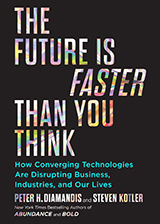 The Future Is Faster Than You Think
The Future Is Faster Than You Think
by Peter Diamandis and Steven Kotler (Simon & Schuster, January 2020)
The authors of the bestsellers Abundance and Bold are back with a vision on how technological disruption, and the convergence of AI, robotics, virtual reality, and digital biology with 3D printing, the blockchain, and gigabit global networks will transform our industries, our lives, and those of our children and our planet. .
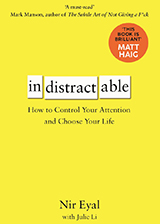 Indistractable
Indistractable
by Nir Eyal (BenBella Books, September 2019)
Behavioral design expert Nir Eyal denounces our addiction to digital technology whose object is to relentlessly attract our attention. The book discusses the psychology of distraction — and how to escape the tyranny of endless notifications. It provides practical and innovative advice to help us control our attention and choose the lives we want.
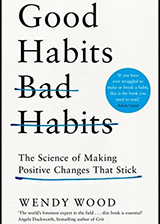 Good Habits, Bad Habits
Good Habits, Bad Habits
by Wendy Wood (Farrar, Straus and Giroux, October 2019)
A leading authority on the science of habits, Wendy Wood draws on three decades of research to describe how we form habits. She examines why force of will alone is not enough to change our habits. Based on the latest findings in neuroscience, the book offers us proven tactics to initiate desired changes.
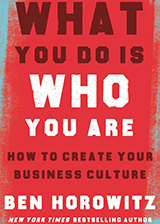 What You Do Is Who You Are
What You Do Is Who You Are
by Ben Horowitz (Harper Business, October 2019)
What is the link between Toussaint Louverture and Netflix’s Reed Hastings? According to author Ben Horowitz, they share a leadership model and organizational culture. Same similarity between Genghis Khan and Don Thompson (McDonald’s). Passionate about history, Horowitz asks a crucial question (and gives answers): how can you create and perpetuate the culture you want within your organization?
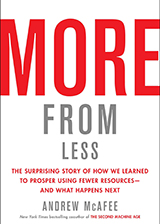 More From Less:
More From Less:
by Andrew McAfee (Scribner, October 2019)
Responding to climate challenges does not necessarily mean decreasing economic growth. Author Andrew McAfee suggests that the improved synthesis of capitalism and technology, good governance, and public awareness have already helped high-tech societies to consume less resources while growing their economies. He admits that issues such as global warming, overfishing, and communities left behind remain to be solved, but holds that generally we need to continue in the direction we’ve been going.
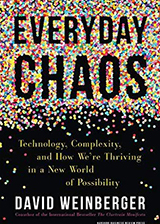 Everyday Chaos
Everyday Chaos
by David Weinberger (Harvard Business School Press, May 2019)
Welcome to an incomprehensible universe. The future you imagined like an arrow aimed at a desirable target now looks like a forest of possibilities in which you could get lost. David Weinberger invites you to think about six key questions to which you may think you already have the answers. You’re probably wrong.
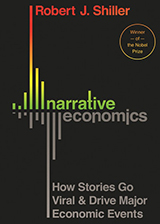 Narrative Economics
Narrative Economics
by Robert J. Shiller (Princeton, 2019)
In this book full of historical examples, Nobel Prize-winning economist Robert Shiller argues that studying popular stories that affect individual and collective economic behavior can improve our ability to predict, prepare for, and lessen the damage caused by crises, recessions, depressions, and other economic events.
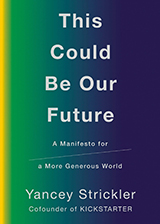 This Could Be Our Future
This Could Be Our Future
by Yancey Strickler (Viking, 2019)
Co-founder of Kickstarter Yancey Strickler says our value system is broken because of three false beliefs: 1) the goal in life is to maximize your income, 2) we’re trapped in a world governed by competition, and 3) this situation is inevitable and eternal. Negative results (climate, corruption, inequalities) have followed. He suggests we should look at the world differently.
© Copyright Business Digest - All rights reserved

